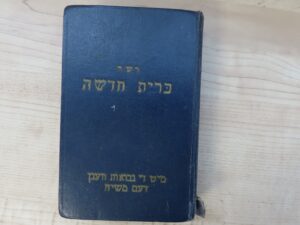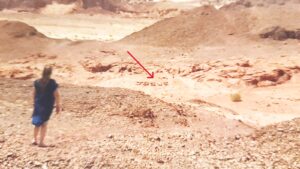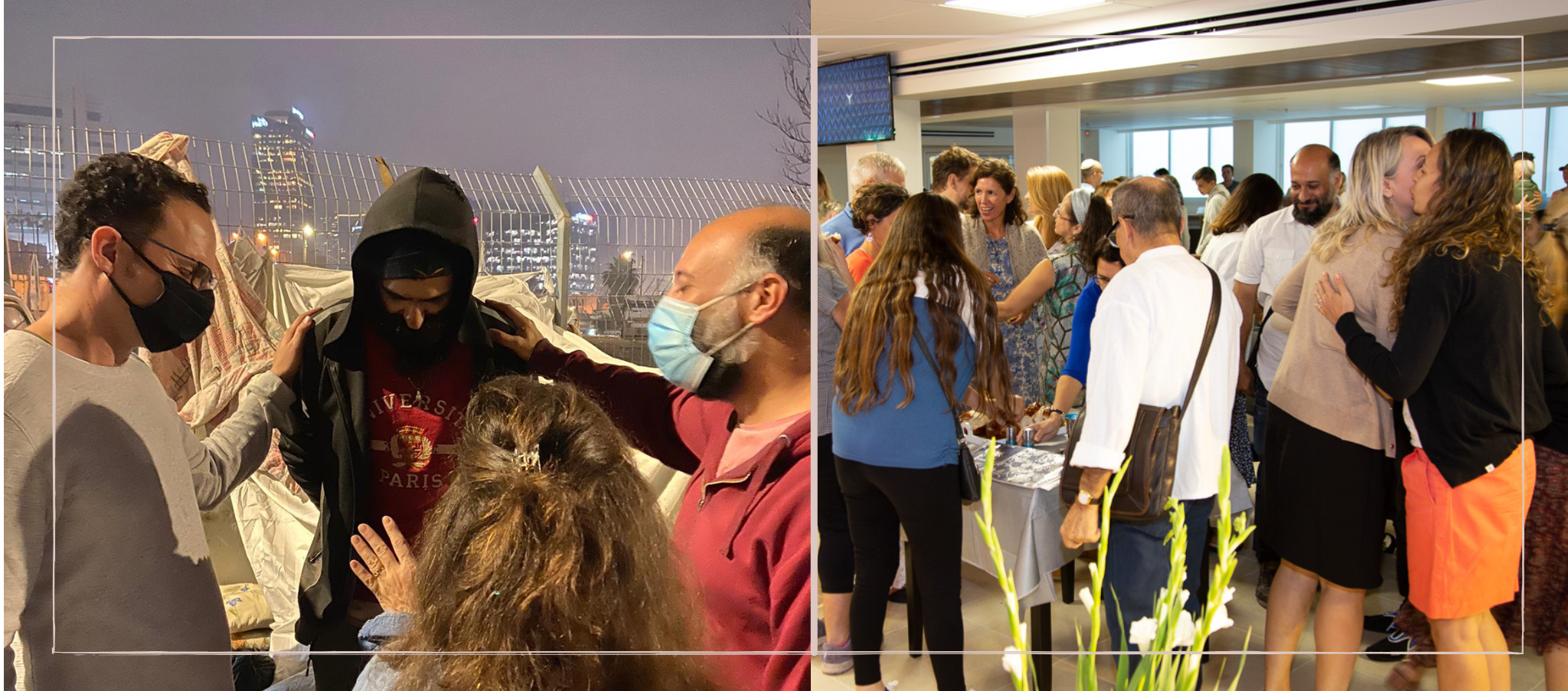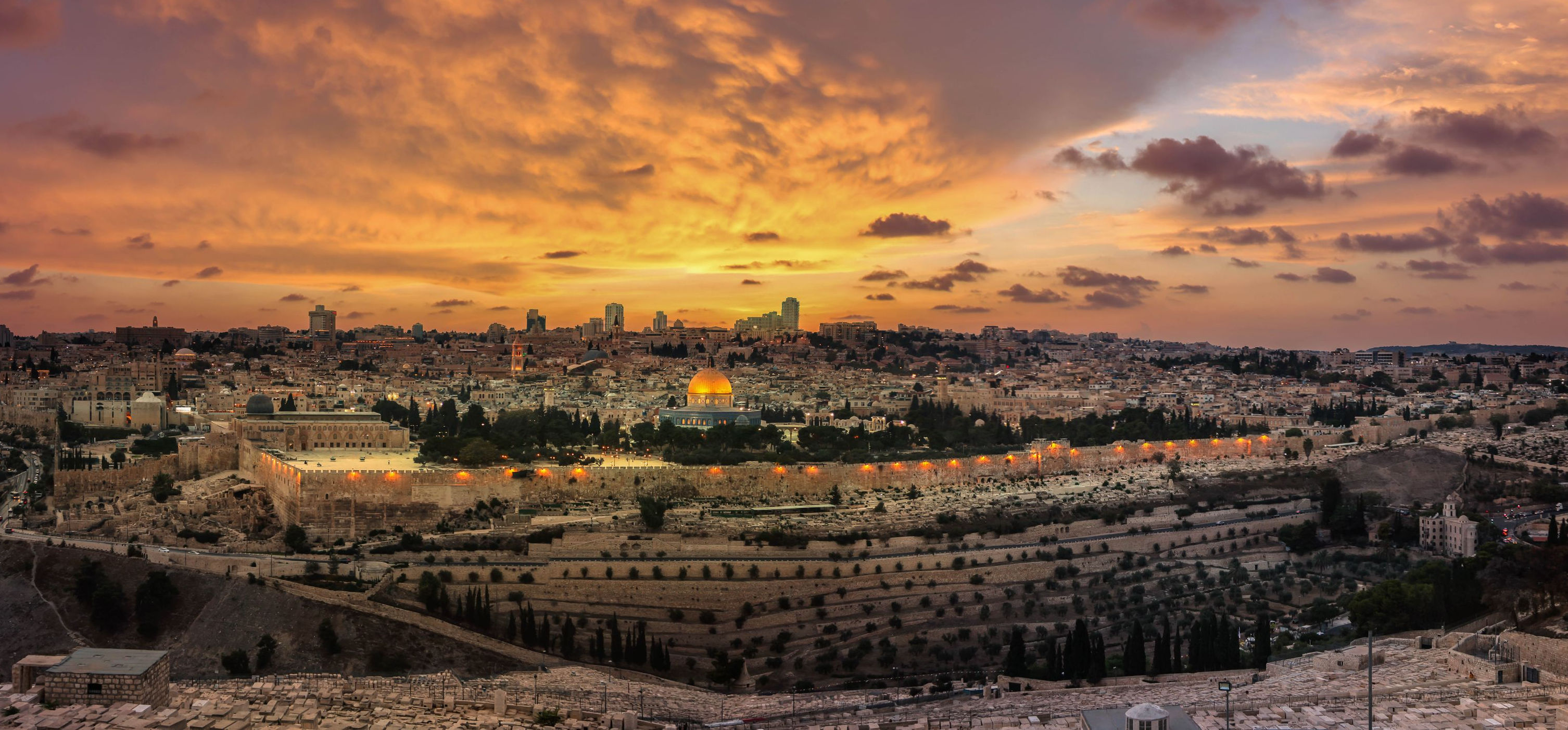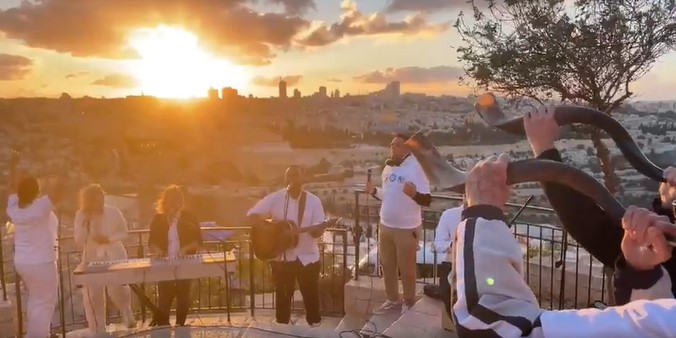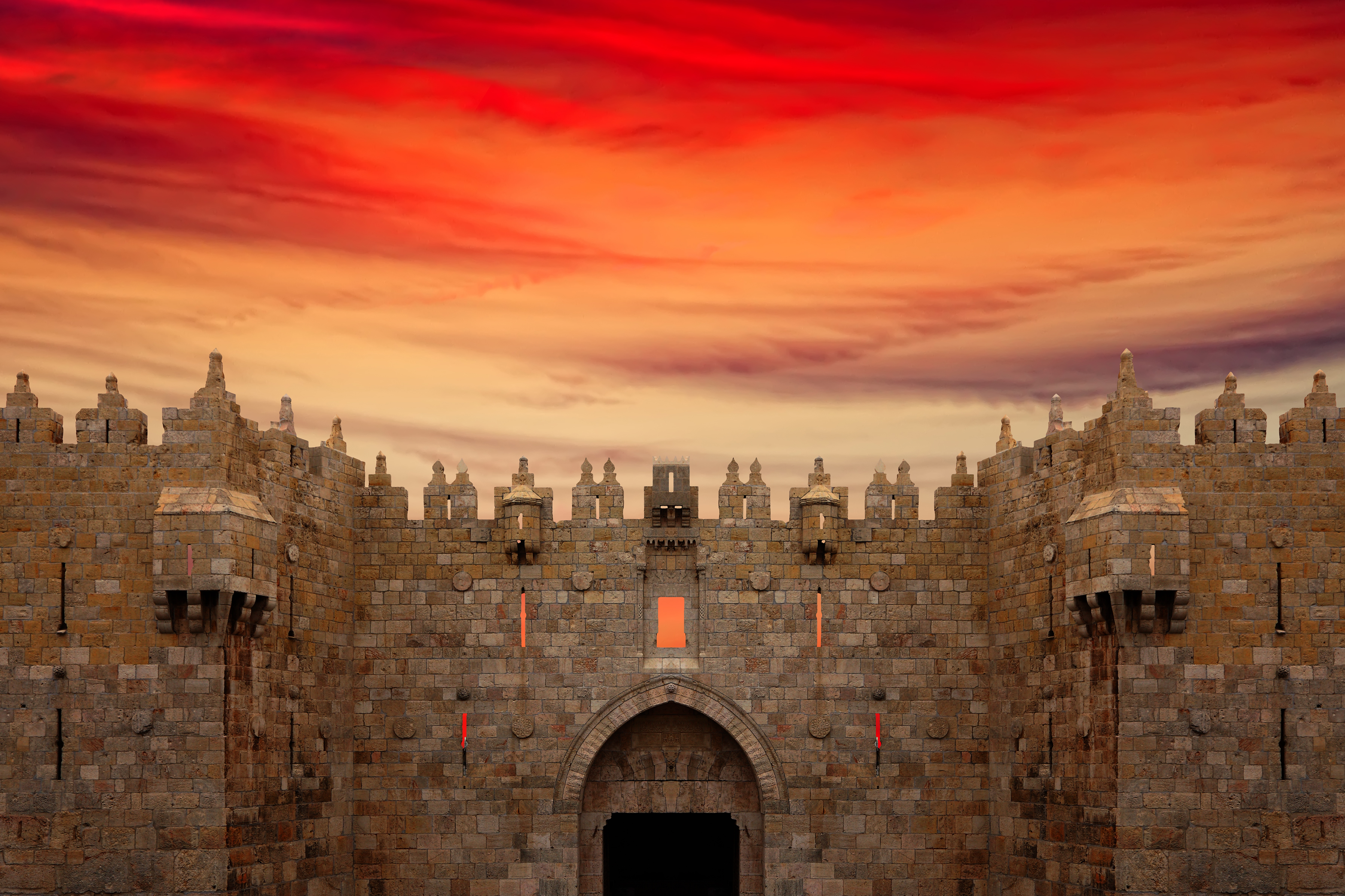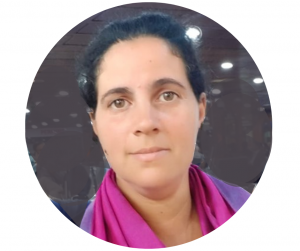When the hour came, He reclined at the table, and the apostles with Him. Then He said to them, “I have fervently desired to eat this Passover with you before I suffer. For I tell you, I will not eat it again until it is fulfilled in the kingdom of God. ” -Luke 22:14-16
Right before His suffering and crucifixion, Yeshua expressed something extraordinary to His disciples: He told them that He fervently desired to eat that last Passover with them.
Just thinking that Yeshua expressed fervent desire for that moment is amazing to me. He knew full well what was waiting for him—the shame and ridicule, the pain and torture—and He was not indifferent to it. Quite the opposite. In the Garden of Gethsemane, He tells His disciples that His “soul is consumed with sorrow to the point of death” and, falling facedown, He pleads with the Father to let the cup of His suffering pass from Him (Matt. 26:38-39). Despite that, Yeshua expressed His fervent desire for that Passover meal, and the question is What is it? What is it that the Lord desired so much that dwarfed even the terrible darkness that was about to come immediately after this Passover meal?
Jeremiah’s prophecy of a New Covenant realized (Jer. 31:31-34)
The first part of the answer is explained by the Lord: “For I tell you, I will not eat it again until it is fulfilled in the kingdom of God”. Yeshua knows that this is His last Passover meal, after which He will serve as the complete and eternal Passover sacrifice which will usher His followers into the new covenant that Jeremiah prophesied over 500 years earlier. The moment He has so fervently desired is the beginning of this new covenant which will allow all His followers to have a close, intimate relationship with God the Father through Him. But His fervent desire is for even more than that: Yeshua tells His disciples that He has fervently desired to eat His last Passover specifically with them. Something special and unprecedented happened between Yeshua and His disciples during that extraordinary Passover meal.
Messiah’s Extraordinary Last Passover
During His last Passover meal, Yeshua forges a deep, intimate connection with His disciples on the highest level. This amazing and unprecedented fellowship is described in the Gospel of John in chapters 13-17. After Judah Iscariot, who was about to betray the Lord, left the meal, Yeshua shared with His loyal disciples some of the deepest, most amazing revelations found in Scripture, revelations which are given to us from a heart of profound intimacy. After finishing their meal, Yeshua told His disciples that He no longer considered them servants but “friends” and that He loved them with the love which the Father loves Him –perfect, all-powerful, absolute love. When I pause to ponder what these revelations mean, I realize that they are beyond my understanding: we need divine revelation to begin to comprehend the breadth, length, depth, and height of this divine love, just as the Apostle Paul prays in Ephesians 5:18-21.
Entering into the Holy of Holies – John 17
In chapter 17, Yeshua takes His disciples into the Holy of Holies by allowing them to be witnesses of His intimate, personal prayer to the Father. By doing so, He essentially brings them into the perfect, holy relationship between the Father and the Son, allowing them to witness the deep, personal connection they have as the One God. Yeshua loved His disciples so completely (He loved them to the end) that He allowed them to be in the most intimate place of love and connection between Him and the Father:
Before the Passover Festival, Jesus knew that His hour had come to depart from this world to the Father. Having loved His own who were in the world, He loved them to the end. -John 13:1
As Yeshua said, there is no greater love than laying one’s life down for another, and that is the expression of God’s complete love through Yeshua’s ultimate sacrifice. The goal of that love, however, is His fervent desire: allowing His disciples and all of us to come into the intimate place of communion of the Father and the Son, to come into God’s house. We understand then that when Yeshua expressed His fervent desire, it was the desire to include us and bring us into the intimate relationship of the Father, Son and Holy Spirit. This inclusion, this special relationship, happens only within the context of the New Covenant. We are adopted as God’s own sons and daughters (Rm. 8:14-15) and not as “second class” children: The Father loves us with the same love He has for His Son:
I am in them and You are in Me. May they be made completely one, so the world may know You have sent Me and have loved them as You have loved Me. -John 17:23
Not only are we now in God’s family, but the Father is also preparing us to be a bride for His Son (Eph. 5:22-33) – the marriage relationship being the pinnacle of intimacy and partnership. Furthermore, Yeshua loves us in the same way the Father loves Him:
As the Father has loved Me, I have also loved you. Remain in My love. -John. 15:9
God has not withheld anything from us. He loved us until the end (perfectly), He has brought us into His house, into his family, into the special, intimate relationship of the Father, Son and Holy Spirit who are united in perfect love which flows from the Father to us through the Son. He has filled us with the Holy Spirit. Yeshua, who is forever God and forever human, is the connection point between us and God. Through our communion with Yeshua as the Son of Man, we are able to be in a relationship with the perfect God. We are able to enter God’s house and family.
So much of this is hard to fathom, and may we never let ourselves take for granted the fact that the holy, majestic God of the universe has opened His house to us, where everything is perfect, pure love, and invited us in to be a part of His family – with all our sin and darkness—through the purification and sanctification in Yeshua the Messiah.
The Goal of Creation Realized
I believe that this was the goal of creation: God created us to become part of His family. Therefore, when Yeshua says, “I have fervently desired” this moment, He is expressing the deep desire of God from creation culminating at that point. Yeshua’s intimate fellowship with His disciples during that last Passover meal is the moment that the goal of creation began to be realized. It will be fully realized when the Body of Messiah attains to the full stature of Messiah and ultimately connects to God in the perfect way He desires. (Eph. 4:13, Rev. 21:3-4)
John 17 – Invitation into the Holy of Holies
During this Passover season, I would like to encourage all of us to devote time to the immensely powerful chapters of John 13 through 17, most especially John 17. When you spend time reading these chapters, ask the Holy Spirit to reveal the power and depth of what Yeshua so fervently desires for us. If this is indeed the goal of creation, that means that this is our ultimate and highest identity and destiny. Today Yeshua is saying to all of us: “I have fervently desired to eat this Passover with you”. This is also the end-time invitation to all of us: in Revelation Yeshua makes this same desire known to us – although we do not usually hear the fervent desire in His voice the way we hear it in the gospel of John, the same passion is there when He says to us:
Behold, I stand at the door and knock. If anyone hears My voice and opens the door, I will come in and dine with him, and he with Me. -Revelation 3:20

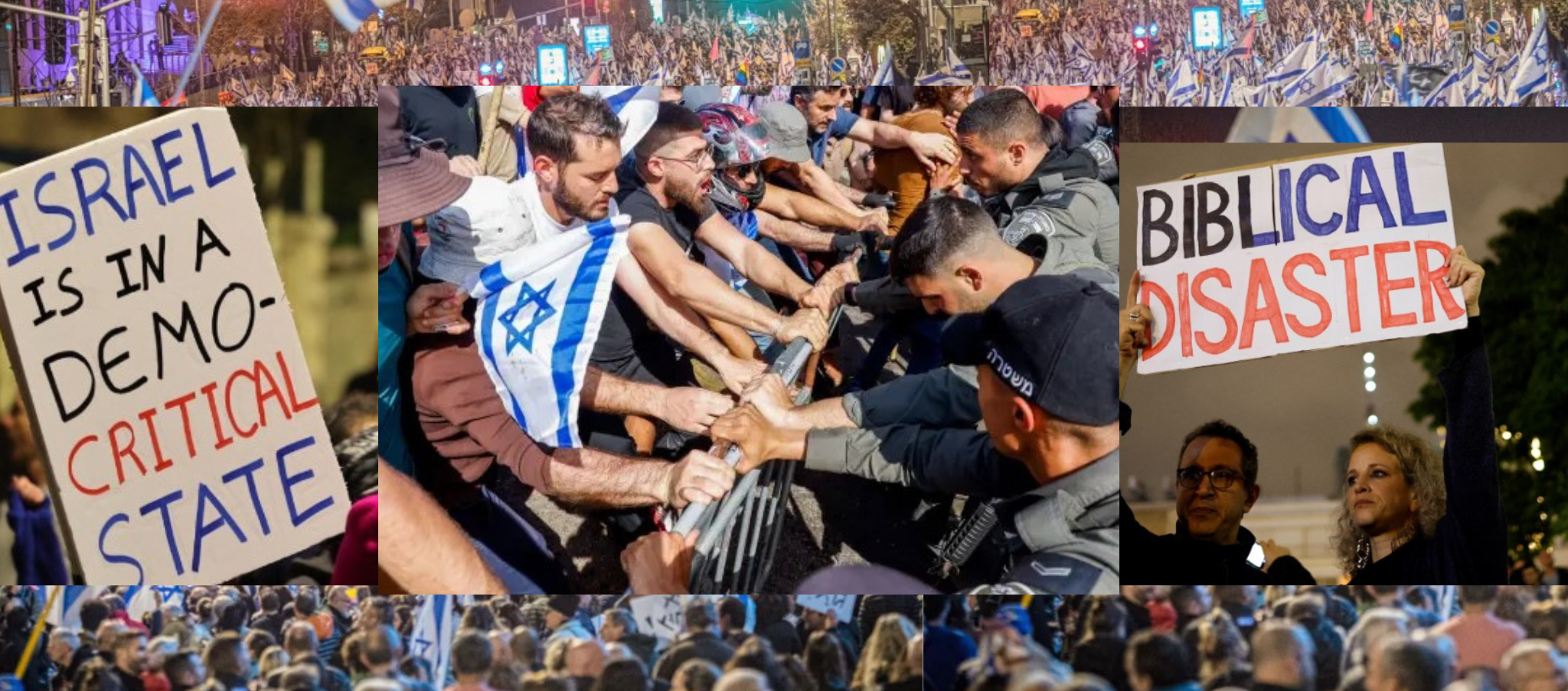

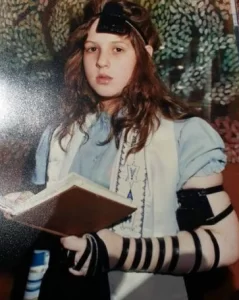 Deborah during her bat mitzvah ceremony in Argentina
Deborah during her bat mitzvah ceremony in Argentina